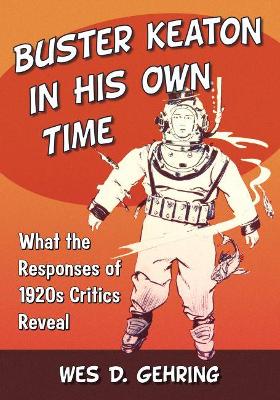If you thought you knew Buster Keaton's silent features, think again. By keying on 1920 period texts one sees how a popular but yet cult star (yes cult star ) is now on a par with Charlie Chaplin. Why? Because his dark comedy anticipation of the Theater of the Absurd speaks to a modern audience like no other silent comedian. Only one Jazz Age critic, Robert Sherwood, seemed to understand why he was ahead of his time: "...he can impress a weary world with the vitally important fact that life, after all, is a foolishly inconsequential affair." Take a look at why The General was a groundbreaking dark comedy but not Keaton's greatest film. Plus, discover why this inspired film really failed in the nineteen twenties. Amazing new period discoveries are also showcased about Sherlock, Jr. Read the revisionist case for The Navigator being the Keaton film. Plus, discover why James Agee's groundbreaking "Comedies Greatest Era" should really have keyed on Chaplin and Keaton. Explore why one of Keaton's period nicknames was "Zero," or why Go West can be seriously mentioned in the same sentence with Krazy Kat and and Edward Albee. If you love silent comedy-if you thought you knew silent comedy-here is the text to reconfigure your understanding of Keaton and nineteen twenties comedy. Don't miss out.
- ISBN13 9781476666808
- Publish Date 14 March 2018
- Publish Status Active
- Publish Country US
- Imprint McFarland & Co Inc
- Format Paperback
- Pages 242
- Language English
